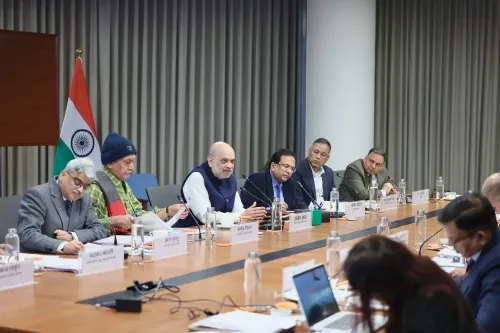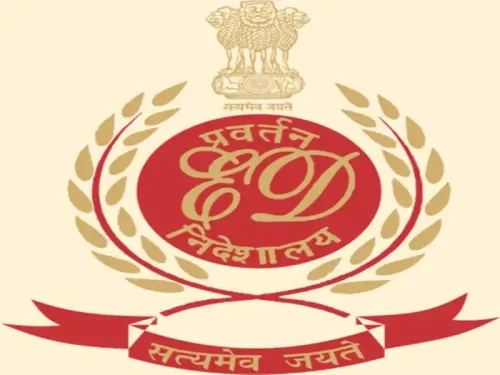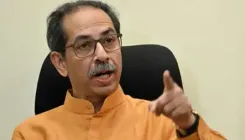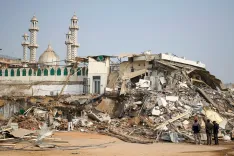What Decisions Did the Maharashtra Cabinet Make Regarding Pahalgam Terror Victims?
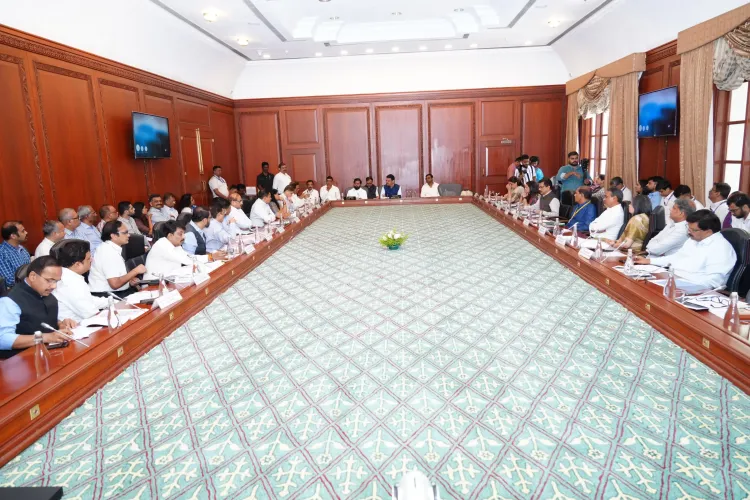
Synopsis
Key Takeaways
- Financial aid of Rs 50 lakh for Pahalgam terror attack victims' families.
- New Electric Vehicle Policy to enhance EV adoption.
- Job opportunities for children of victims.
- Infrastructure projects including a six-lane elevated road.
- Revised crop insurance policy to favor farmers.
Mumbai, April 29 (NationPress) The Maharashtra Cabinet, led by Chief Minister Devendra Fadnavis, convened on Tuesday and made 12 significant decisions, including the allocation of Rs 50 lakh in financial support to the families of the victims of the Pahalgam terror attack. The Cabinet also discussed the Maharashtra Electric Vehicle Policy, 2025, improvements in shipbuilding and repair facilities (Shipyard), policies for ship recycling, an Aggregator Policy for app-based vehicles, and a revised crop insurance policy tailored for farmers.
In a statement to the press, Fadnavis confirmed that the Cabinet has decided to provide Rs 50 lakh to the families affected by the terror incident in Pahalgam. Prior to this, the Cabinet honored the victims with tributes.
The Chief Minister emphasized that the state government would prioritize the education and employment opportunities for the children of the deceased families. He also mentioned that direct heirs of the victims would be offered jobs, including a position for the daughter of Santosh Jagdale, who lost her life in the attack.
Furthermore, to enhance the adoption of electric vehicles, the Cabinet unveiled the Maharashtra Electric Vehicle Policy, 2025 along with the Aggregator Policy aimed at app-based vehicle services.
The Cabinet also sanctioned the development of shipbuilding and repair facilities and established a framework for ship recycling policies. The Chief Minister noted that these initiatives would bolster Maharashtra's standing in this industry, capitalizing on its three major ports and approximately 18 to 20 minor ports, positioning the state as a formidable competitor to Gujarat.
Amidst considerable criticism regarding irregularities in the existing Rs 1 crop insurance schemes, the Chief Minister announced that the Cabinet has approved a revised crop insurance policy designed to favor deserving farmers rather than insurance companies.
Additionally, the Cabinet authorized the construction of a six-lane elevated road and expanded the existing Hadapsar to Yavat state road to six lanes, with a budget of Rs 5262.36 crore.
Other decisions included the establishment of Maha InvIT (Infrastructure Investment Trust) under the Public Works Department, and the approval of revised expenditures of Rs 488.53 crore for ongoing works and dam leakage prevention at the Temghar Project in Pune district.
The Cabinet also modified the Maharashtra Begging Prohibition Rules, 1964, under the Mumbai Begging Prohibition Act, 1951. This amendment raises the daily allowance for individuals in begging houses from Rs 5 to Rs 40, marking the first change since the law was enacted in 1964.
Moreover, the Cabinet approved the execution of revised guidelines from the Central government for the 2021-22 to 2025-26 Pre-Matric and Post-Matric Scholarship Scheme targeting students from OBC, EBC, and DNT categories within the PM-YASASVI framework.
Lastly, the Cabinet greenlighted special initiatives for the development of the Gowari community, a segment of the Special Backward Category, aligning with the schemes currently being implemented for Scheduled Tribes by the Tribal Development Department.
The Cabinet also approved an increase in the personal loan interest repayment limit for the Other Backward Classes Finance and Development Corporation, along with the Vasantrao Naik Vimukta Jati and Nomadic Tribes Development Corporation from Rs 10 lakh to Rs 15 lakh.


